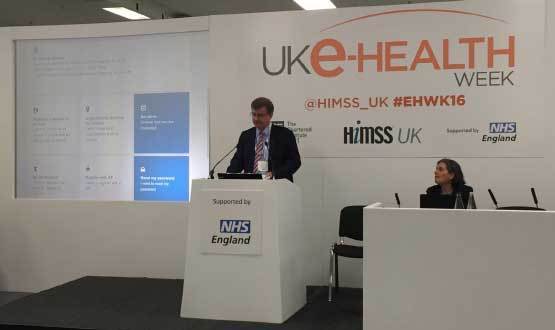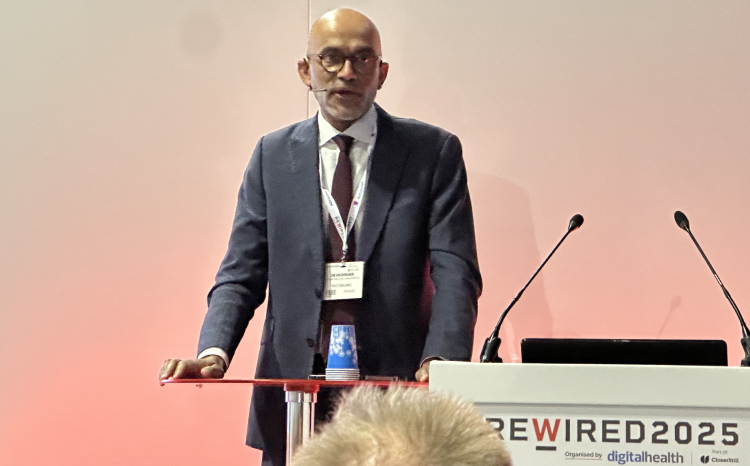London develops Health and Care Information Exchange
- 4 May 2016

Health and social care organisations across the capital are working to develop a London Health and Care Information Exchange.
The programme aims to allow the seamless transfer of patient records between health care providers spanning London and beyond.
A proof of concept for how the exchange could work was presented at the recent eHealth Week conference at Kensington Olympia.
The idea is the brainchild of the London Digital Programme, which is one of the 13 transformation programmes that make up the Healthy London Partnership.
The partnership programme is worth £18 million over three years and includes all 32 clinical commissioning groups, NHS England (London), the academic health science networks, 28 trusts, London CIO Council and representation from the capital’s local authorities.
Chief officer of Waltham Forest CCG Terry Huff was part of the eHealth presentation, where he explained that London has a population of nine million with thousands of healthcare providers and 30 information exchanges, none of which can talk to each other or are scalable at London-level.
“We recognised just over a year ago that we need a scalable solution, we need records to transfer across the whole of London and beyond,” he said.
Rather than developing something entirely new, the programme aims to build on some of the information sharing systems that are already available by developing The London Health and Care Information Exchange.
The team is building an interoperability architecture based on the use of an index, a registry to locate records and an ‘affinity domain’ to retrieve records from across London.
Mike Part, programme lead for the London Digital Programme, said the idea is to create a single data sharing agreement for London and allow data controllers connected to the exchange to decide what records to share.
Patients will also have an online account where they can select their sharing preferences.
“We want to move towards an electronic information sharing agreement with NHS organisations in London. This will enable at-scale information sharing and the data will only flow if the patient says yes,” explained Part.
He said the exchange is based on the design principle that connected citizens should only have to connect once and, within the NHS, data should have to be entered just once. This information should be available anywhere anytime for those who need it, via the adoption of common interoperability standards at-scale, he added.
At Olympia, the team demonstrated the use of CDA-based standards for an end of life care plan and a crisis care data extract, which have been co-developed with the Professional Records Standards Body. Deployment and use of these standards is expected within the next six to nine months.
“The aspiration is to work with existing and future suppliers to implement technical and data standards in London over the next two to three years,” a statement from the digital programme team says.
“We also want to support additional exchanges of data using similar CDA content standards for other clinical scenarios.”
Suppliers that have participated in developing the prototype are; Emis Health; Cerner; InterSystems; Adastra; and Coordinate my Care.




